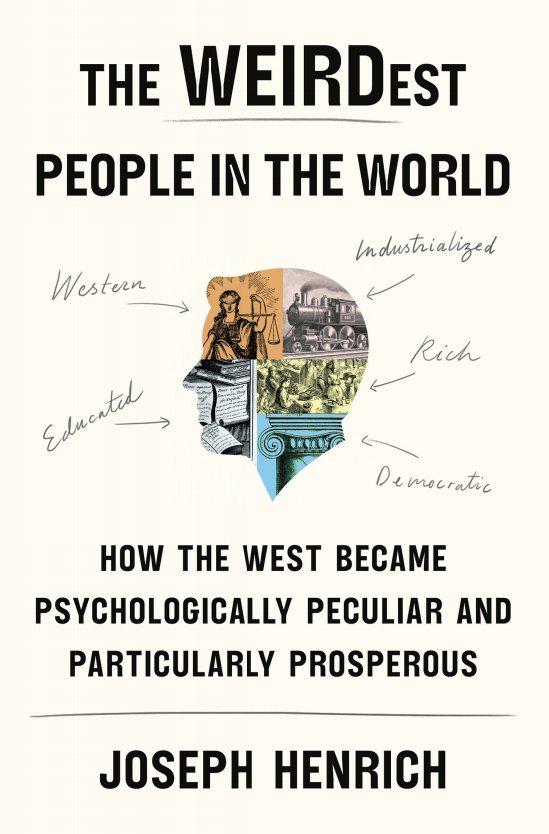Hruschka, D., and J Henrich. “
Prosocial Behavior, Cultural Differences in.” In
International Encyclopedia of the Social & Behavioral Sciences, 238-243. 2nd ed. Elsevier, 2015.
Publisher's Version Henrich, Joseph.
The Secret of Our Success: How culture is driving human evolution, domesticating our species, and making us smart. Princeton, NJ: Princeton University Press, 2015.
Publisher's VersionAbstractHumans are a puzzling species. On the one hand, we struggle to survive on our own in the wild, often unable to solve basic problems, like obtaining food, building shelters or avoiding predators. On the other hand, human groups have produced innovative technologies, sophisticated languages, and complex institutions that have permitted us to successfully expand into environments across the globe. What has enabled us to dominate such a vast range of environments, more than any other species? The Secret of Our Success lies not in our innate intelligence, but in our collective brains—in the ability of human groups to socially interconnect and to learn from one another.
Drawing insights from lost European explorers, clever chimpanzees, hunter-gatherers, neuroscientists, ancient bones, and the human genome, Joseph Henrich demonstrates how our collective brains have propelled our species’ genetic evolution, and shaped our biology. Our early capacities for learning from others produced many innovations, such as fire, cooking, water containers, plant knowledge and projectile weapons, which in turn drove the expansion of our brains and altered our physiology, anatomy and psychology in crucial ways. Further on, some collective brains generated and recombined powerful concepts, such as the lever, wheel, screw and writing. Henrich shows how our genetics and biology are inextricably interwoven with cultural evolution, and that this unique culture-gene interaction has propelled our species on a unique evolutionary trajectory.
Tracking clues from our ancient past to the present, The Secret of Our Success explores how our cultural and social natures produce a collective intelligence that explains both our species striking uniqueness and odd peculiarities.
Visit the book website here.
Chudek, Maciej., Michael Muthukrishna, and Joseph Henrich. “
Cultural Evolution.” In
The Handbook of Evolutionary Psychology,
edited by David M. Buss. Vol. 2. 2nd ed. John Wiley and Sons, 2015.
 PDF
PDF Salali, Gul Deniz, Myriam Juda, and Joseph Henrich. “
Transmission and development of costly punishment in children.”
Evolution and Human Behavior 36 (2015): 86-94.
AbstractEvolutionary theorists argue that cultural evolution has harnessed various aspects of our evolved psychology to create a variety of different mechanisms for sustaining social norms, including those related to large-scale cooperation. One of these mechanisms, costly punishment, has emerged in experiments as an effective means to sustain cooperation in some societies. If this view is correct, individuals' willingness to engage in the costly punishment of norm violators should be culturally transmittable, and applicable to both prosocial and anti-social behaviors (to any social norm). Since much existing work shows that norm-based prosocial behavior in experiments develops substantially during early and middle childhood, we tested 245 3- to 8-year olds in a simplified third party punishment game to investigate whether children would imitate a model's decision to punish, at a personal cost, both unequal and equal offers. Our study showed that children, regardless of their age, imitate the costly punishment of both equal and unequal offers, and the rates of imitation increase (not decrease) with age. However, only older children imitate not-punishing for both equal and unequal offers. These findings highlight the potential role of cultural transmission in the stabilization or de-stabilization of costly punishment in a population.
 PDF
PDF 

